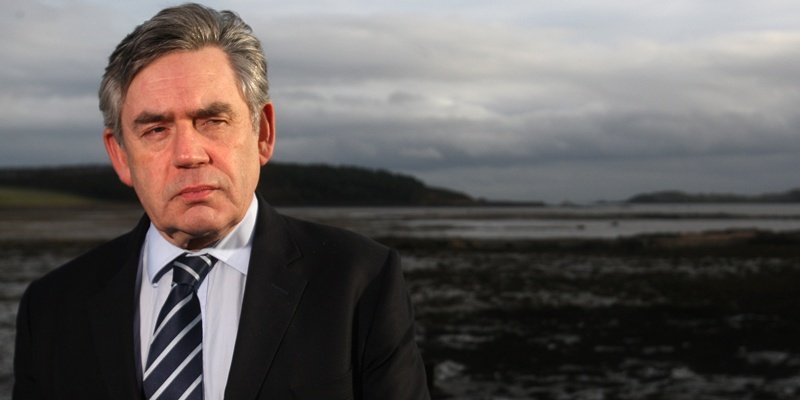The Ministry of Defence has finally agreed to visit a Fife beach contaminated with radiation.
The commitment given to local MP Gordon Brown follows repeated calls for the MoD to accept responsibility for the dangerous particles on the shore at Dalgety Bay.
The move has been welcomed by Mr Brown and he has also called for another meeting with Secretary of State Philip Hammond on the issue.
However, the MP has expressed disappointment that the government department did not send a representative to a public meeting on Friday evening to discuss the radiation, branding it a ”shocking revelation of their ineffective and insensitive approach”.
Instead, local community council chairman Colin McPhail was asked to read out a statement on behalf of the MoD, who claimed it would not be appropriate for them to attend a meeting in the presence of politicians and the media.
Mr Brown has previously warned the area is in danger of becoming the first parcel of land in the UK to be officially designated as radiation-contaminated, and he is one of many to demand action.
The presence of radiation has been known since 1990, but particles with 10 times previous radiation levels have recently been discovered.
The bay was the site of the Donibristle military airfield, where a large number of aircraft were dismantled after the Second World War. The dials in the planes were painted with luminous, radioactive radium so they could be read at night.
They were incinerated and the resulting clinker dumped as landfill to help reclaim part of the headland on the bay.
Experts from the Scottish Environment Protection Agency (SEPA) believe the particles are being swept ashore from the headland by currents.
Mr Brown told Friday’s public meeting in Dalgety Bay that SEPA had the power to designate the area as contaminated but said it would be better if the MoD agreed voluntarily to remove dangerous materials and repair the area to prevent further risk.
He added that while the MoD had refused to attend the community meeting, the decision of the minister to visit early in the new year was the right one.
Revealing he had been in touch with SEPA head Campbell Gemmell just last week, Mr Brown said: ”Both Professor Gemmell and I are shocked by the insensitive way this is being handled by the Ministry of Defence.”
Referring to the MoD’s refusal to attend the meeting, he continued: ”This is a shocking revelation of their ineffective and insensitive approach to a radiation question.
”Everyone knows that for all previous years the surveying of the area has been accepted as an MoD responsibility.
”Now they have to step up to the plate and make sure they remove the dangerous particles and then remedy the environment.”
In their statement, the MoD said the increase in the number of radiation particles discovered did not necessarily imply a rise in the risk to human health.
”That said, we agree that the risk needs to the reviewed in the light of these discoveries,” the statement read.
”It is therefore important that the risk be adequately quantified and understood taking into account the likelihood of exposure.”
The agency said it was working with SEPA to identify a programme of work for ”credible remediation and management measures”, despite the work falling within SEPA’s responsibility.
